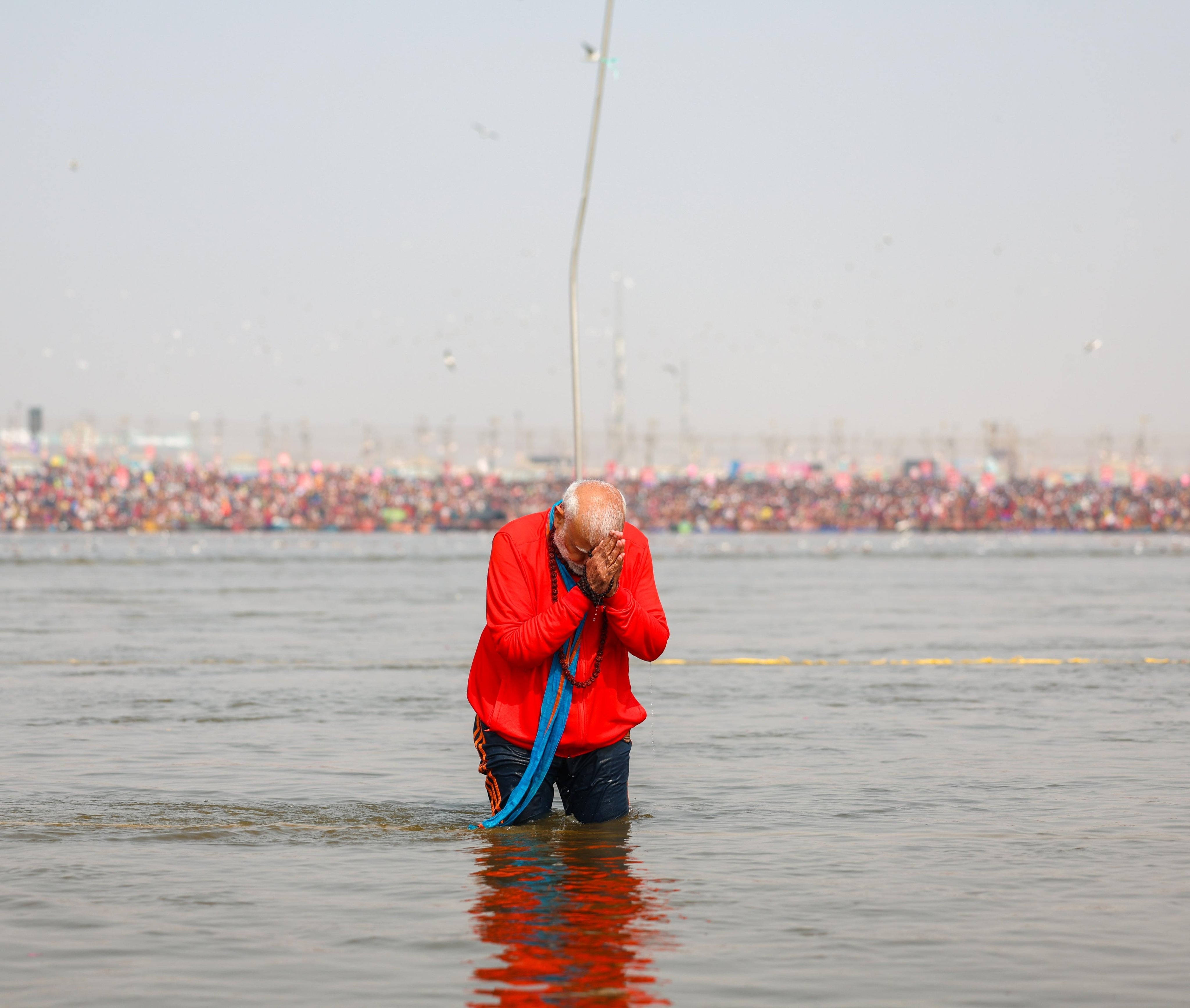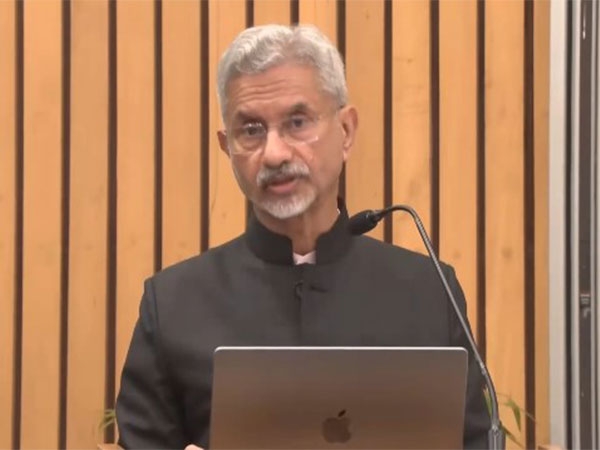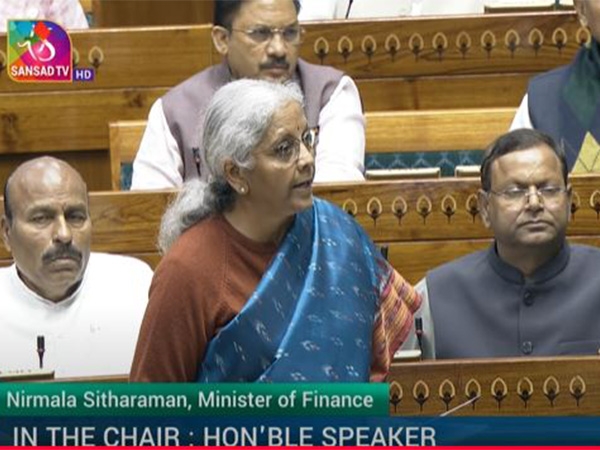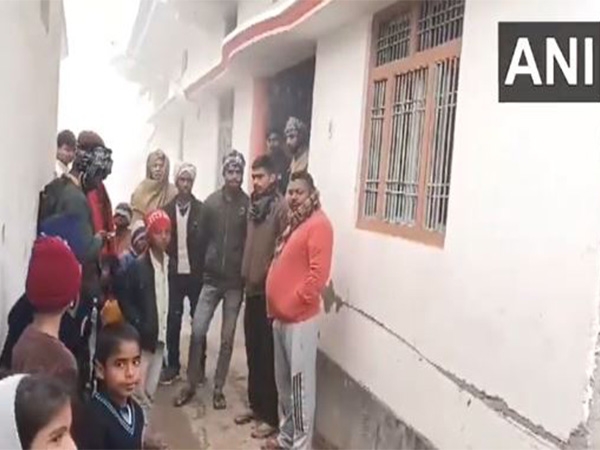11 reasons why the ghost of Ehsan Jafri still haunts Modi

The Gujarat High Court began hearing a petition against the 'clean chit' given to Narendra Modi and several others by the Supreme Court-appointed SIT on 4 August.
This is the last criminal case related to the 2002 carnage in which the then-Chief Minister of Gujarat and the present Prime Minister of the country has been made an accused.
The hearing is a result of a 'criminal revision application' filed by Zakia Jafri, widow of Ehsan Jafri, who was murdered by a Hindu mob during the riots. Jafri is being given legal aid by activist Teesta Setalvad and her organisation Citizens for Justice and Peace (CJP).
The court's decision to hear the plea made by Zakia Jafri, against all odds, gives the prosecution an opportunity to press for a fresh inquiry and prosecute Modi and 58 others in connection with the spate of communal violence.
The case may cause huge embarrassment to Modi, senior bureaucrats and BJP functionaries if the High Court considers the evidence submitted by Jafri credible enough to begin a trial.
However if the court rejects Jafri's plea, Modi, BJP president Amit Shah and others may at last be able to put the ghosts of the 2002 violence behind them forever, at least till the petitioners appeal against the rejection in the Supreme Court.
Jafri's legal team has built the case by revisiting the SIT's reports filed in 2010 and 2012, and from messages collected from the State Intelligence Bureau, phone call records, Police Control Room records and various testimonies given to the SIT.
Catch has copies of the 2010 report and the 2012 closure reports filed by the SIT, based on which, Jafri and CJP are attempting to get prosecution proceedings launched against Modi and the others.
Disparities in the reports
Interestingly there are disparities between what the SIT noted in its report of 2010 and the closure report of 2012. The 2012 report exonerates most of the people against whom it raised suspicions in 2010.
It must be noted here that the lawyer for the SIT, CS Vaidyanathan, has defended the closure report in the Gujarat High Court, and claimed that Jafri has not submitted any new evidence in the case.
He told the court, "The investigation was monitored by the Supreme Court. It also appointed an amicus curiae to look into the reports."
Vaidyanathan added, "The amicus curiae suggested further investigation. The SIT made further investigation and submitted its reports. The reports were again looked into by the amicus curiae."
If the court does decide to take another look at the 2010 report, here are 11 reasons Modi and the others may stand on shaky ground.
In an interview given to Zee after the riots, Modi quoted Newton's third law of motion in the context of the pogrom against Muslims in Gujarat.
Many interpreted it as justification for the Hindu backlash to the alleged instigation by Muslims in the form of setting fire to a railway coach carrying Hindu karsevaks in Godhra.
On page 69 of its report filed to the Supreme Court in 2010, the SIT notes, "The chief minister had tried to water down the seriousness of the situation at Gulberg Society, Naroda Patiya and other places by saying that every action has an equal and opposite reaction."
There was an allegation against Modi of showing a clear bias by not visiting sites from where large-scale violence against Muslims had been reported.
On page 67, the SIT comments that Modi displayed a "discriminatory attitude by not visiting the riot-affected areas in Ahmedabad, where a large number of Muslims were killed, though he went to Godhra on the same day, travelling almost 300 km on a single day."
The SIT chairman, RK Raghavan, on page 8, also notes that "Modi did not cite any specific reasons why he did not visit the affected areas in Ahmedabad city as promptly as he did in the case of the Godhra train carnage."
Members of the SIT, in their 2010 report, raised their eyebrows at some of the speeches or turns of phrase used by Modi after the riots, particularly in his Gaurav Yatra speech at Becharaji, Mehsana, on 9 September 2002.
In his speech, Modi was reported to have made several controversial remarks about a community.
On page 13 of the report, Raghavan says about Modi's statements: "Accusing some elements in Godhra and the neighbourhood as possessing a criminal tendency was sweeping and offensive, coming as it did from a chief minister, that too at a critical time when Hindu-Muslim tempers were running high."
On 28 February 2002, a day after the attack on the Sabarmati Express at Godhra, the Vishwa Hindu Parishad (VHP) called for a statewide bandh. The bandh crippled the state and made it tougher for Muslims to escape the massacre. On that day, the horrific massacres at Naroda Patiya and Gulberg Society took place.
Another bandh was called for on 1 March, when massacres at Randhikpur-Sanjeli, Sardarpura, Sesan, Odh, Pandharwada and Kidiad, among others, took place
On page 69 of the report, the SIT writes, "Shri Vijay Badekha, Under Secretary to Home Department has stated before the SIT that both Gujarat bandh on 28-02-2002 and Bharat bandh on 01-03-2002, were supported by the BJP.
"He added that keeping in view the Fundamental Rights of the Citizens of India, the bandhs were not banned by the Govt."
Despite detailed recommendations of strict action submitted to Modi by field officers of the State Intelligence Bureau, no action was taken against several regional publications that allegedly carried incendiary articles, urging people to come out with arms and fight.
The report, on page 79 notes, "During the course of enquiries by SIT, Govt. of Gujarat has intimated in writing that no action had been taken on the recommendations of Shri R.B. Sreekumar against print media. This allegation, therefore, stands established."
In the aftermath of the carnage, the Modi government was alleged to have destroyed several records and delayed the findings of the SIT and not cooperated with the investigations.
The SIT notes that many did not cooperate with the agency and many did not want to come in conflict with the politicians in power and incur 'their wrath, which affected their frank response'.
On page 13, the report states: "The police wireless messages for the year 2002 were not made available by the Govt of Gujarat as the same had been reportedly destroyed...No record/documentation/minutes of the crucial law & order meetings held by Govt. during the riots had been kept...Some of the public servants who had retired long time back, claimed loss of memory as they did not want to get involved in any controversy..."
The SIT deals with the issue of dead bodies of the Godhra train incident, which were handed over to one Jaideep Patel of the VHP. The bodies were later paraded through several districts, allegedly to inflame communal hatred.
Between pages 19 to 23, the SIT says: "SIT inquiry revealed that there was in fact a discussion at Godhra on the final disposal of bodies of those killed in the Godhra carnage. This was during chief minister Narendra Modi's visit to the town on the afternoon of 27 February 2002.
"It was held at the Collectorate. It is not clear who all were present or consulted. Apart from the district collector, the presence at least of Gordhan Zadaphiya (MoS, home) and Jaideep Patel, VHP activist, has been confirmed."
It was alleged that senior policemen did not follow the call of duty, and that simply exercising their control over their respective jurisdictions could have saved many lives.
The allegations are particularly levelled at the then Joint Commissioner of Police, MK Tandon, and his junior, Deputy Commissioner of Police PK Gondia.
"[The] situation was alarming at Gulberg Society as well as Naroda Patiya...It would have been irresponsible on his [Tandon's] part to move out of Naroda Patiya. Sr. PI (Inspector of Police) ...sent alarming messages ...which were duly received by him [Tandon]...but no action was taken.
"The defence [for not responding to distress calls from Gulberg Society] put forward by Shri MK Tandon is far from satisfactory....the explanation...for his absence..despite distress messages...is totally unconvincing and will not cut any ground." (Pages 48-49)
There were allegations that the police was heavily prejudiced towards one community and did not carry out a fair probe after the riots.
"Shri Rahul Sharma [then DCP, Control Room] has stated before the SIT that he had information about the use of mobile phones in a big way in the alleged organising of communal riots throughout the state including Ahmedabad City."
However, Sharma's colleagues did not respond to his efforts to use mobile phone records as evidence.
The report says, "This appears to be an intentional lapse on the part of Shri Tarun Barot, the then PI (Inspector of Police) and now ACP, SOG, Ahmedabad and Shri GL Singhal, the then ACP, Crime Branch and now SP, ATS, Ahmedabad and the same deserves to be dealt with major penalty departmental proceedings against them."
Allegations were levelled against the Modi government for giving plum posts to some and punishment postings to others, based on their reaction to the violence of 2002.
In this context, the SIT notes, "It is true that there were a few such transfers which were in fact questionable, especially because they came immediately after incidents in which the officers concerned had known to have antagonised ruling party men. Neither police officer would however admit he had been victimised." (from pages 32-36 and 8)
The Gujarat government was accused of hurriedly calling elections right after the riots, to cash in on the polarised majority Hindu vote bank.
The ruling BJP government dissolved the Assembly on 19 August 2002, nine months before the expiry of the five-year term, and demanded an early election.
The SIT also notes irritation on the part of the then Chief Election Commissioner, JM Lyngdoh, for being misled by Gujarat government.
Gujarat government had proposed to share two presentation to convince election commission on how peaceful situation was in the state.
The SIT on page 79 notes, 'Chief Election Commissioner said that they were not interested in any presentation, as the ground situation was different from the items presented earlier to a team sent by the Election Commission.'
Page 80 has a quote from Lyngdoh, "Mr Chief Secretary you have temerity to claim normalcy but everywhere we got complaints of threat from criminal elements voiced by the victims of riots."






![BJP's Kapil Mishra recreates Shankar Mahadevan’s ‘Breathless’ song to highlight Delhi pollution [WATCH] BJP's Kapil Mishra recreates Shankar Mahadevan’s ‘Breathless’ song to highlight Delhi pollution [WATCH]](https://images.catchnews.com/upload/2022/11/03/kapil-mishra_240884_300x172.png)

![Anupam Kher shares pictures of his toned body on 67th birthday [MUST SEE] Anupam Kher shares pictures of his toned body on 67th birthday [MUST SEE]](https://images.catchnews.com/upload/2022/03/07/Anupam_kher_231145_300x172.jpg)






